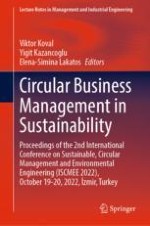2023 | OriginalPaper | Chapter
Sustainable Households Financial Behaviour in EU and Implications on Developing Financial Literacy
Authors : Lyubomir Todorov, Aleksandrina Aleksandrova, Marin Marinov
Published in: Circular Business Management in Sustainability
Publisher: Springer Nature Switzerland
Activate our intelligent search to find suitable subject content or patents.
Select sections of text to find matching patents with Artificial Intelligence. powered by
Select sections of text to find additional relevant content using AI-assisted search. powered by
